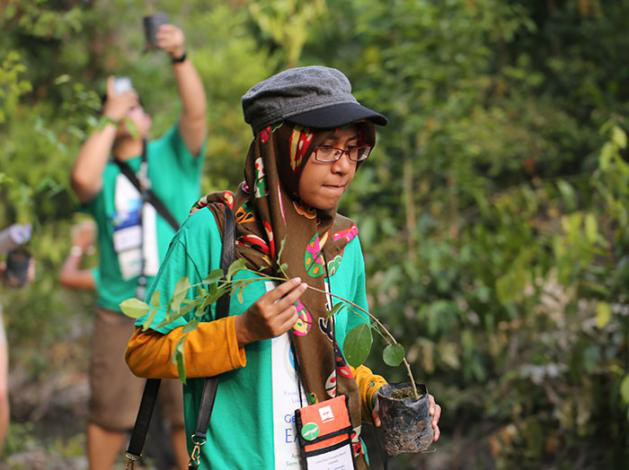
1.Which of the following is NOT the purpose of the new bill?
A To increase economic income.
B To increase forest cover.
C To deal with the problem of climate change.
D To promote “inter-generational responsibility” for the environment.
解析:选A。细节理解题。新法案要求菲律宾的学生植树是为了让他们为了环保做出自己的贡献,增加经济收入并没有提到,故选A。
2.Which of the following is NOT true?
A More and more young people are concerning about the future of the planet.
B The Philippines has lost more than 30% of its forest cover due to illegal logging.
C The new bill applies to all students in order to graduate from kindergarten.
D Students can plant trees in forests, reserves, urban areas, or abandoned mining sites.
解析:选C。细节理解题。根据最后一段According to the details outlined in the bill, the rule applies to all students in order to graduate from primary school, high school and college.可知,原文中并未提及kindergarten(幼儿园),故选C。
3.What’s the Chinese meaning of the underlined word “reverse”?
A 增加.
B 扭转.
C 加快.
D 减少.
解析:选B。词义猜测题。根据关联词but,结合语境语意“由于非法采伐,菲律宾已经失去了超过30%的森林覆盖面积,但这项新法案意味着年轻一代可以帮忙扭转这一现状”,故选B。
4.What can we learn from the passage?
A Young students have no right to keep a balanced and healthy ecology.
B We should cultivate the awareness of environmental protection from a young age.
C Protecting the environment is only the responsibility of adults and the government.
D Developing countries cannot protect the environment in order to develop the economy.
解析:选B。推理判断题。 根据文章内容可知,新法案让小学生、中学生和大学生在毕业前都植树,从小培养孩子们的环保生态意识,故选B。